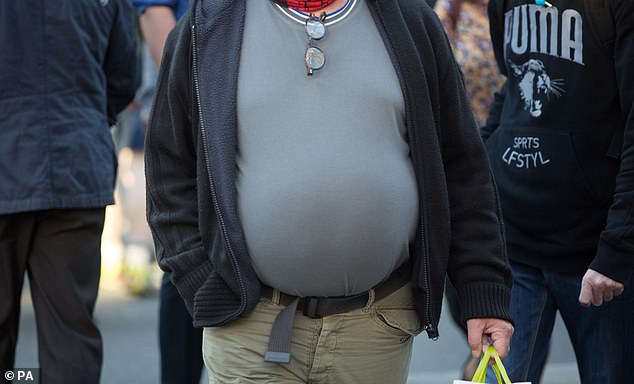Weight-loss operation you can have in 90 minutes which slashes the size of a patient’s stomach by two-thirds is recommended for introduction on the NHS
- Endoscopic sleeve gastroplasty (ESG) takes doctors just 90 minutes to perform
- Patients can leave the hospital on the same day as their procedure
- The ‘accordion procedure’ is recommended for introduction into the NHS
A weight loss procedure that reduces the size of a patient’s stomach by two-thirds without the need for major surgery has been recommended for introduction to the NHS.
Endoscopic sleeve gastroplasty (ESG), also called an ‘accordion procedure’, takes just 90 minutes and patients can leave the hospital later the same day.
In the draft guidance, the National Institute for Health and Care Excellence (Nice) states that ESG should be offered to patients with a BMI (body mass index) of 30 or more who have not lost weight through lifestyle changes.
Weight loss surgery, such as gastric banding or bypasses, is an option for people with a BMI of 40 or more, or for patients with a BMI of more than 35 with other conditions such as type 2 diabetes.
But unlike these, ESG is potentially reversible, as it does not involve cutting the stomach.

Obesity costs the NHS around £6.5 billion a year and is the second biggest preventable cause of cancer (File Photo)
Performed under general anesthesia, a surgeon guides a flexible tube containing a camera and medical instruments through the patient’s mouth and into the stomach.
Parts of the stomach wall are folded and stitched together to reduce its size and create a tube-like sleeve, reducing the amount of food people can consume and making them feel full more quickly.
Clinical studies found that 77 percent of participants lost a quarter or more of their original weight one year after the procedure.
Professor Jonathan Benger, chief medical officer in Nice, said: ‘One of the advantages is that this procedure can be performed as a day case and does not involve an overnight stay, reducing the time people spend in hospital compared to other surgical options. The recovery is also faster.’
Nice found it was a ‘safe and effective’ procedure and offered cost benefits due to the potential benefits it would bring in helping patients avoid other diseases.
Obesity costs the NHS around £6.5 billion a year and is the second biggest preventable cause of cancer.
About 25.9 percent of adults in England are overweight, while a further 37.9 percent are overweight.
Professor Benger said surgical treatment options are in high demand and that ‘not everyone wants surgery such as weight loss surgery or is fit enough’.
A consultation on the ESG procedure is open until October 26. It is the latest step from Nice to help tackle obesity. Earlier this year, the Wegovy weight loss jab was given the green light for around 50,000 NHS patients.

